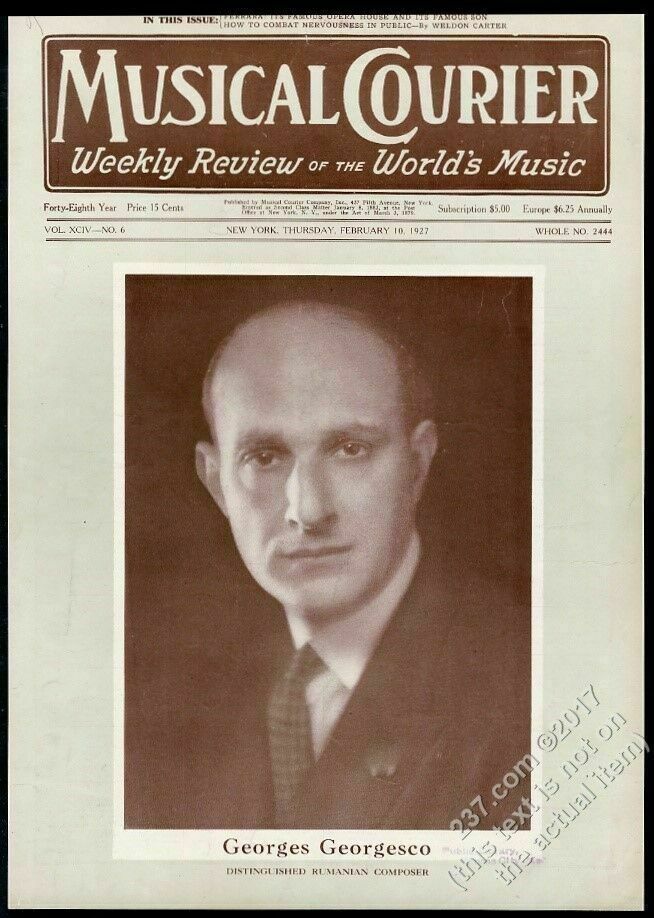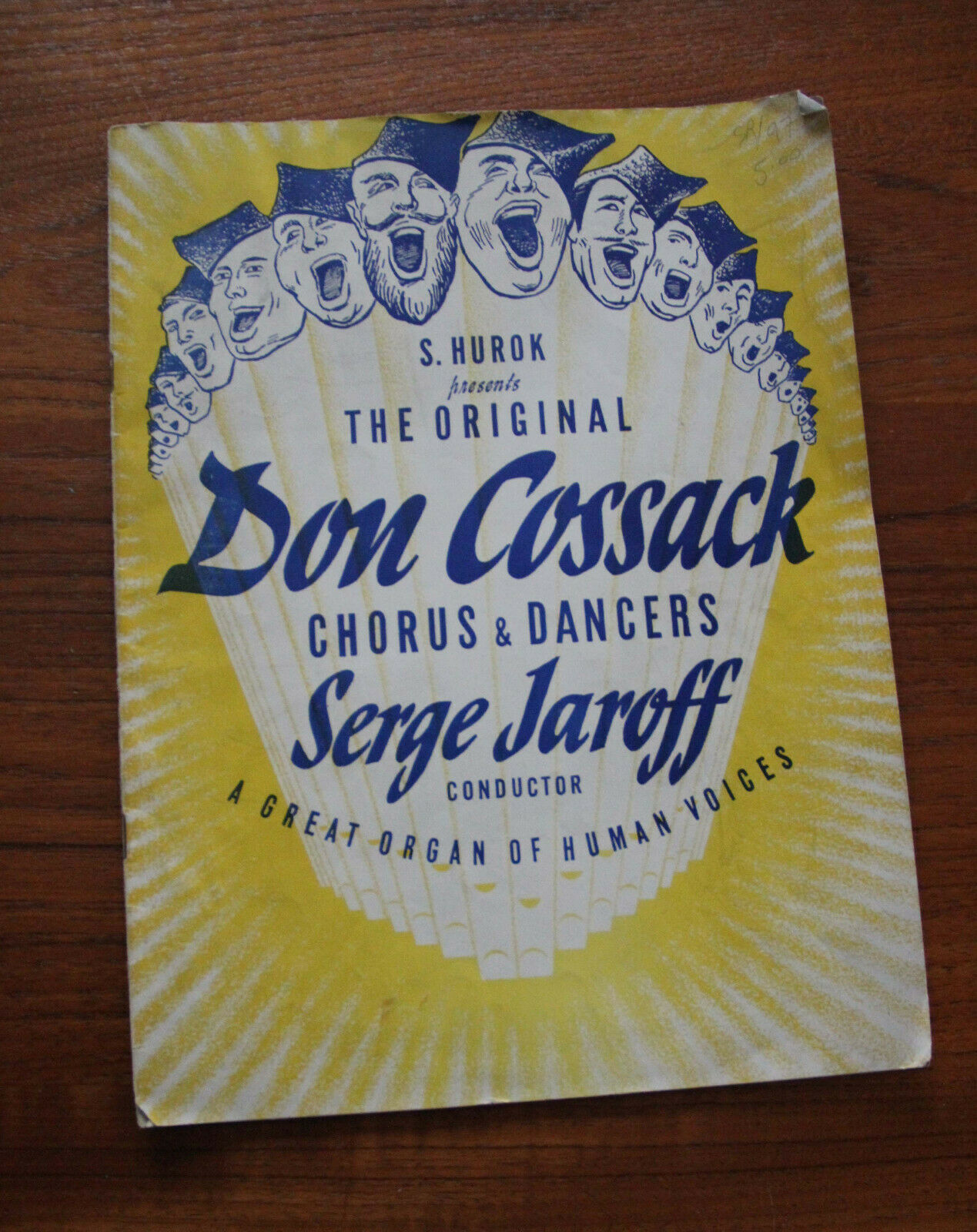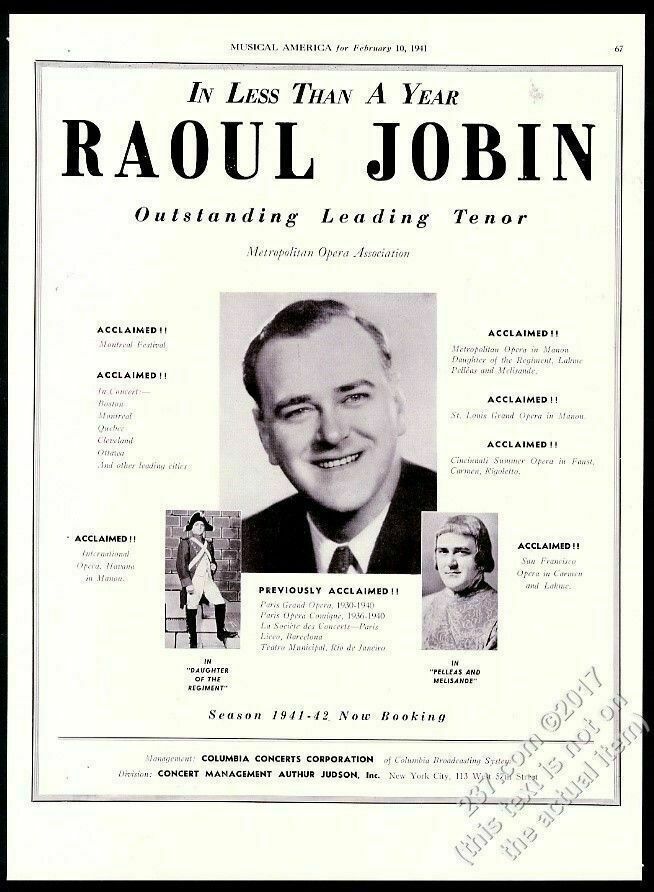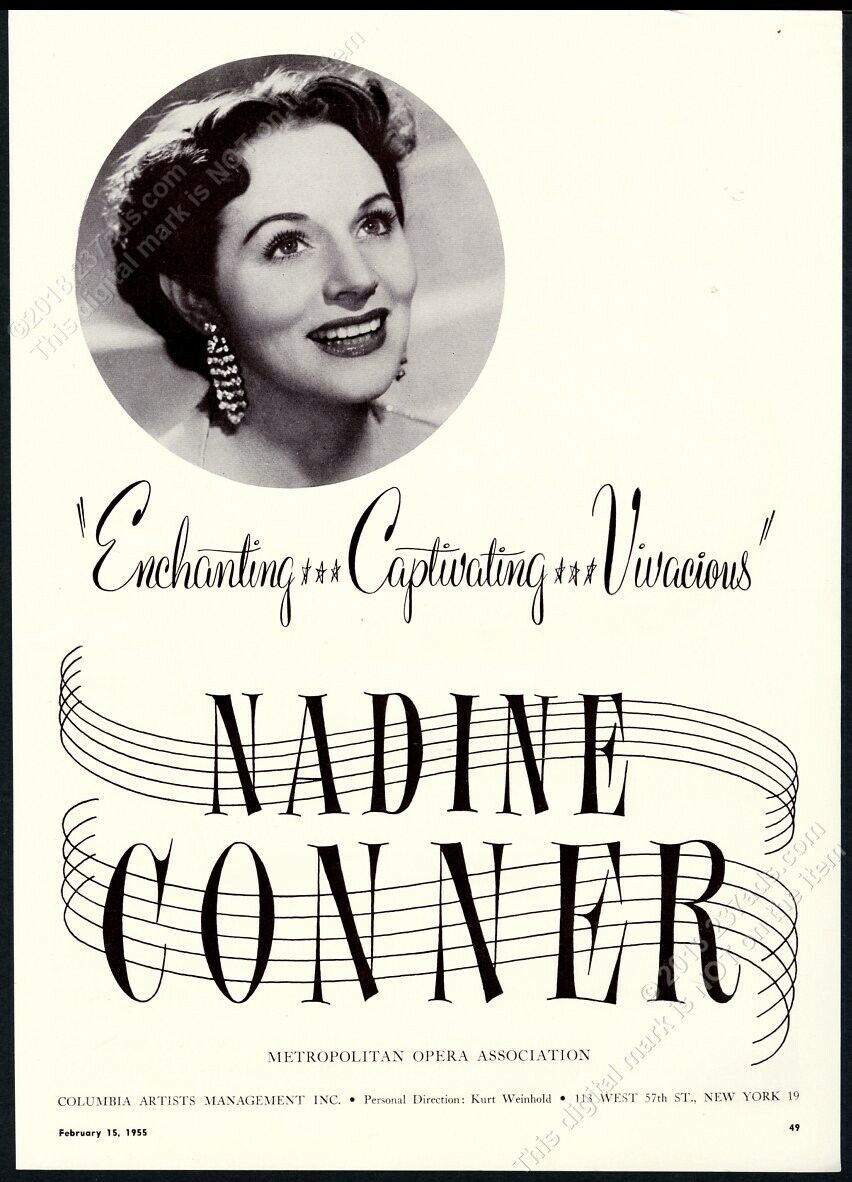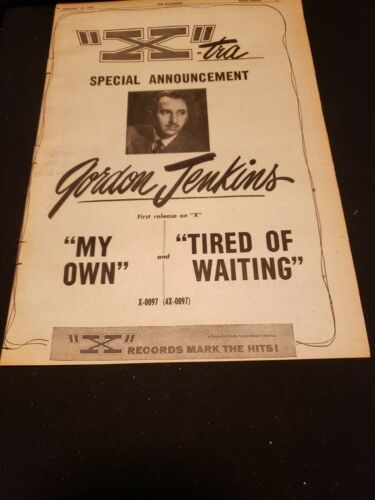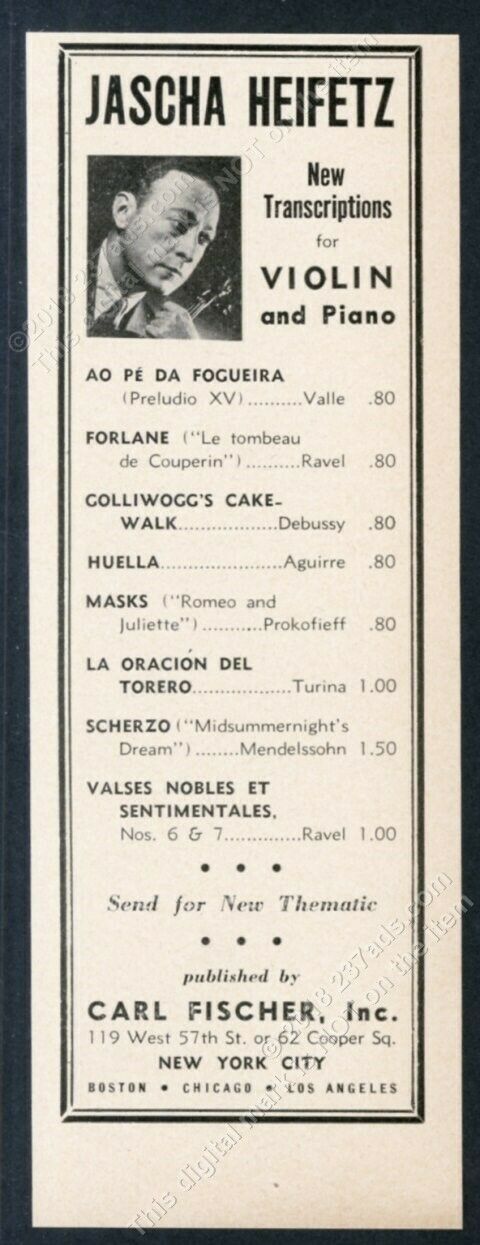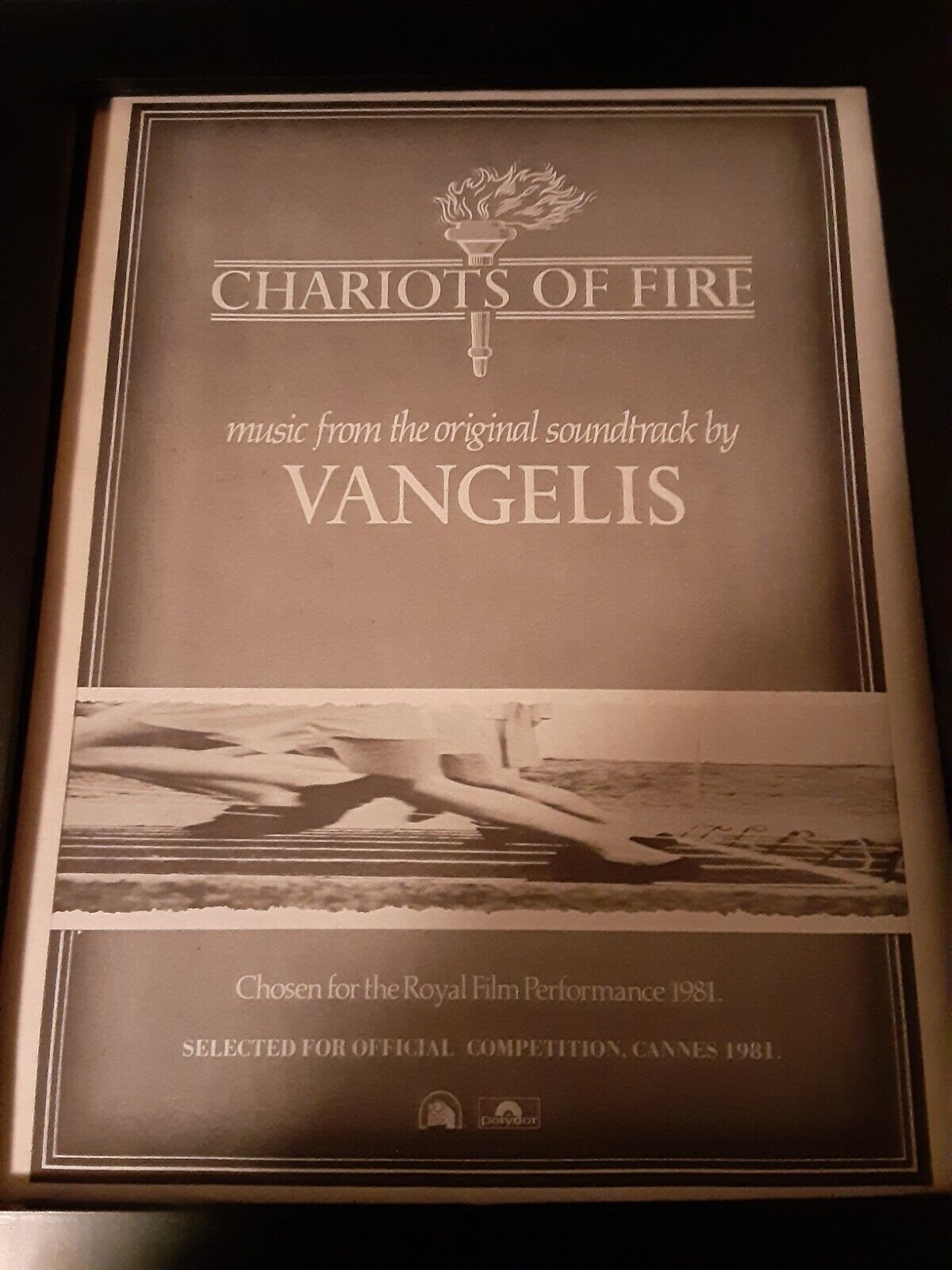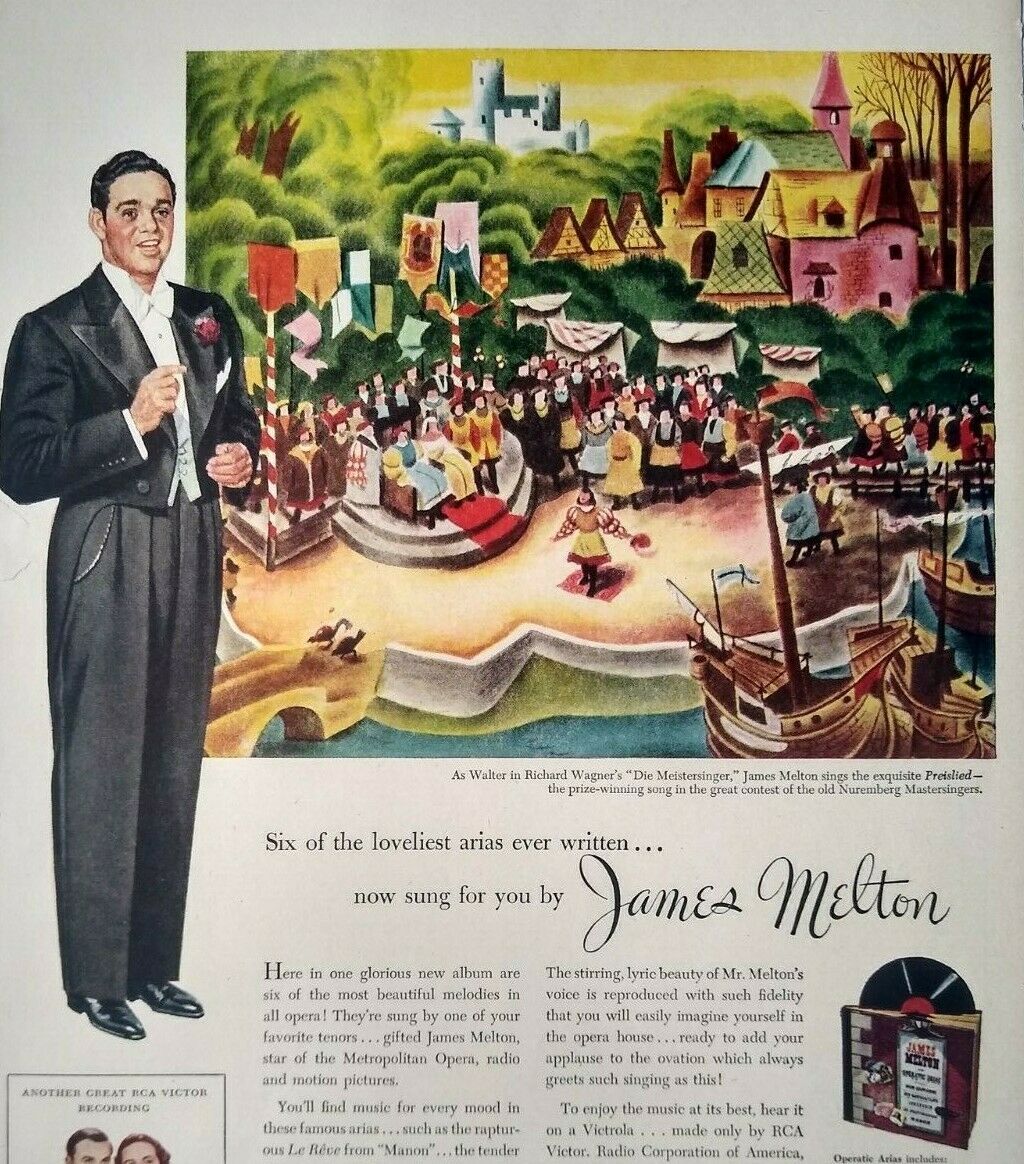-40%
Artur Rubinstein handbill flyer Carnegie Hall piano pianist
$ 39.59
- Description
- Size Guide
Description
Hello!For sale I have an original handbill/flyer for the legendary pianist Artur Rubinstein at Carnegie Hall. Year unknown. One sheet, 2-sided 5 7/8 x 8 7/8 inches. Perfect/Mint condition. USPS Priority Mail.
I have been a professional violinist for 20 years. I currently teach violin at University of California, Berkeley, and play Concertmaster for the Sacramento Philharmonic and Opera. I've been buying and selling music memorabilia on eBay since it was invented and I've been buying antique art from European and American auction houses for a decade. All pieces for sale are guaranteed authentic and come from my personal collection, which numbers in the thousands. To learn more about me visit www.danflanaganviolin.com.
Arthur Rubinstein
(
Polish
:
Artur Rubinstein
; 28 January 1887 – 20 December 1982) was a
Polish-American
[1]
classical
pianist. He is widely regarded as one of the greatest pianists of all time.
[2]
He received international acclaim for his performances of the music written by a variety of composers and many regard him as the greatest
Chopin
interpreter of his time.
[3]
[4]
He played in public for eight decades.
Rubinstein was born in
Łódź
,
Congress Poland
(part of the
Russian Empire
for the entire time Rubinstein resided there) on 28 January 1887, to a Jewish family. He was the youngest of seven children of Felicja Blima Fajga (née Heiman) and Izaak Rubinstein. His father owned a small textile factory.
[6]
[7]
Rubinstein's birth name was to be
Leo
, but his eight-year-old brother claimed that "His name must be Artur. Since Artur X (a neighbour's son) plays the violin so nicely, the baby may also become a great musician!"
[8]
And so he was called Artur, although in English-speaking countries, he preferred to be known as
Arthur Rubinstein
. His United States impresario
Sol Hurok
, however, insisted he be billed as
Artur
, and records were released in the West under both versions of his name.
[9]
At age two, Rubinstein demonstrated
perfect pitch
and a fascination with the piano, watching his elder sister's piano lessons. By the age of four, he was recognised as a
child prodigy
. His father had a predilection for the violin and offered Rubinstein a violin; but Rubinstein rejected it because he thought his instinct was for harmony and polyphony. The Hungarian violinist
Joseph Joachim
, on hearing the four-year-old child play, was greatly impressed, telling Arthur's family, "This boy may become a very great musician—he certainly has the talent for it... When the time comes for serious study, bring him to me, and I shall be glad to supervise his artistic education." On 14 December 1894, seven-year-old Arthur Rubinstein had his debut with pieces by
Mozart
,
Schubert
and
Mendelssohn
.
[8]
[10]
When he became ten years of age, Rubinstein moved to
Berlin
to continue his studies, and gave his first performance with the
Berlin Philharmonic
in 1900, at the age of 13.
[3]
Joseph Joachim recommended
Karl Heinrich Barth
as the boy's piano teacher. As a student of Barth, Rubinstein inherited a renowned pedagogical lineage: Barth was himself a pupil of
Liszt
, who had been taught by
Czerny
, who had in turn been a pupil of
Beethoven
.
[3]
Music and career
In 1904, Rubinstein moved to
Paris
to launch his career in earnest, where he met the composers
Maurice Ravel
and
Paul Dukas
and the violinist
Jacques Thibaud
. He also played
Camille Saint-Saëns
'
Piano Concerto No. 2
in the presence of the composer. Through the family of
Juliusz Wertheim
(to whose understanding of Chopin's genius Rubinstein attributed his own inspiration in the works of that composer) he formed friendships with the violinist
Paul Kochanski
and composer
Karol Szymanowski
.
[10]
Rubinstein made his New York debut at
Carnegie Hall
in 1906, and thereafter toured the United States, Austria, Italy, and Russia. According to his own testimony and that of his son in
François Reichenbach
's film
L'Amour de la vie
(1969), he was not well received in the United States. By 1908, Rubinstein, destitute and desperate, hounded by creditors, and threatened with being evicted from his Berlin hotel room, made a failed attempt to hang himself. Subsequently, he said that he felt "reborn" and endowed with an unconditional love of life. In 1912, he made his London debut, and found a musical home there in the Edith Grove,
Chelsea
, musical salon of Paul and Muriel Draper, in company with Kochanski,
Igor Stravinsky
,
Jacques Thibaud
,
Pablo Casals
,
Pierre Monteux
and others.
[10]
During
World War I
, Rubinstein stayed in London, giving recitals and accompanying the violinist
Eugène Ysaÿe
. In 1916 and 1917, he made his first tours in Spain and South America where he was wildly acclaimed. It was during those tours that he developed a lifelong enthusiasm for the music of
Enrique Granados
,
Isaac Albéniz
,
Manuel de Falla
, and
Heitor Villa-Lobos
. He was the dedicatee of Manuel de Falla's
Fantasía Bética
, Villa-Lobos's
Rudepoêma
and Stravinsky's
Trois mouvements de Petrouchka
.
Rubinstein was disgusted by Germany's conduct during the war and never played there again. His last performance in Germany was in 1914.
[10]
In the autumn of 1919 Rubinstein toured the British provinces with soprano
Emma Calvé
and tenor
Vladimir Rosing
.
[11]
From England, Rubinstein left Southampton on January 5, 1920, bound for New York on the Red Star Line "Lapland".
[12]
[
better source needed
]
In 1921 Rubinstein gave two American tours, travelling to
New York
with Karol Szymanowski and his close friend Paul Kochanski.
[10]
In 1934, the pianist, who stated he neglected his technique in his early years, relying instead on natural talent, withdrew from concert life for several months of intensive study and practice.
Rubinstein toured the United States again in 1937, his career becoming centered there during the
World War II
years when he lived in
Brentwood, California
. He became a naturalized US citizen in 1946.
[13]
During his time in California, Rubinstein provided the piano soundtrack for several films, including
Song of Love
with
Katharine Hepburn
. He appeared, as himself, in the films
Carnegie Hall
and
Of Men and Music
.
Although best known as a recitalist and concerto soloist, Rubinstein was also considered an outstanding chamber musician, partnering with such luminaries as
Henryk Szeryng
,
Jascha Heifetz
,
Pablo Casals
,
Gregor Piatigorsky
and the
Guarneri Quartet
. Rubinstein recorded much of the core piano repertoire, particularly that of the
Romantic
composers. At the time of his death,
The New York Times
in describing him wrote, "
Chopin
was his specialty ... it was [as] a Chopinist that he was considered by many without peer."
[3]
With the exception of the
Études
, he recorded most of the works of Chopin. In 1964, at the height of the
Cold War
, he gave a legendary concert in
Moscow
, with a pure Chopin program.
[14]
He was one of the earliest champions of Spanish and South American composers, as well as
French composers
of the early 20th century (such as
Debussy
and
Ravel
). In addition, Rubinstein promoted the music of his compatriot
Karol Szymanowski
. Rubinstein, in conversation with
Alexander Scriabin
, named
Brahms
as his favorite composer, a response that enraged Scriabin.
[15]
In 1969, the film
Arthur Rubinstein – The Love of Life
was released; it won the
Academy Award
for Best Documentary Feature. (A later TV special,
Rubinstein at 90
, highlighted how he had been playing for people for eight decades.)
By the mid-1970s, Rubinstein's eyesight had begun to deteriorate. He retired from the stage at age 89 in May 1976, giving his last concert at London's
Wigmore Hall
, where he had first played nearly 70 years before.
Rubinstein, who was fluent in eight languages,
[13]
held much of the repertoire (and not only that of the piano) in his formidable memory.
[13]
According to his memoirs, he learned
César Franck
's
Symphonic Variations
while on a train en route to the concert, without the benefit of a piano, practicing passages in his lap. Rubinstein described his memory as
photographic
, to the extent that he would visualize an errant coffee stain while recalling a score.
[16]
Rubinstein also had exceptionally developed
aural
abilities, which allowed him to play whole symphonies in his mind. "At breakfast, I might pass a Brahms symphony in my head," he said. "Then I am called to the phone, and half an hour later I find it's been going on all the time and I'm in the third movement." This ability was often tested by Rubinstein's friends, who would randomly pick extracts from opera and symphonic scores and ask him to play them from memory.
[3]
Rubinstein's autobiography contained two volumes:
My Young Years
(1973); and
My Many Years
(1980). Many were displeased by their emphasis on personal anecdotes over music. Pianist
Emanuel Ax
, one of Rubinstein's greatest admirers, was profoundly disappointed by reading
My Many Years
: "Until then," he told
Harvey Sachs
, "I had idolized Rubinstein—I had wanted to have a life like his, the book changed all that."
[5]
In a reflective muse, Rubinstein once noted "It is simply my life, music. I live it, breathe it, talk with it. I am almost unconscious of it. No, I do not mean I take it for granted—one should never take for granted any of the gifts of God. But it is like an arm, a leg, part of me. On the other hand, books and paintings and languages and people are passions with me, always to be cultivated. Travel too. I am a lucky man to have a business which allows me to be on the road so much. On the train, the plane, I have time to read. There again, I am a lucky man to be a pianist. A splendid instrument, the piano, just the right size so that you cannot take it with you. Instead of practicing, I can read. A fortunate fellow, am I not?"
[17]


